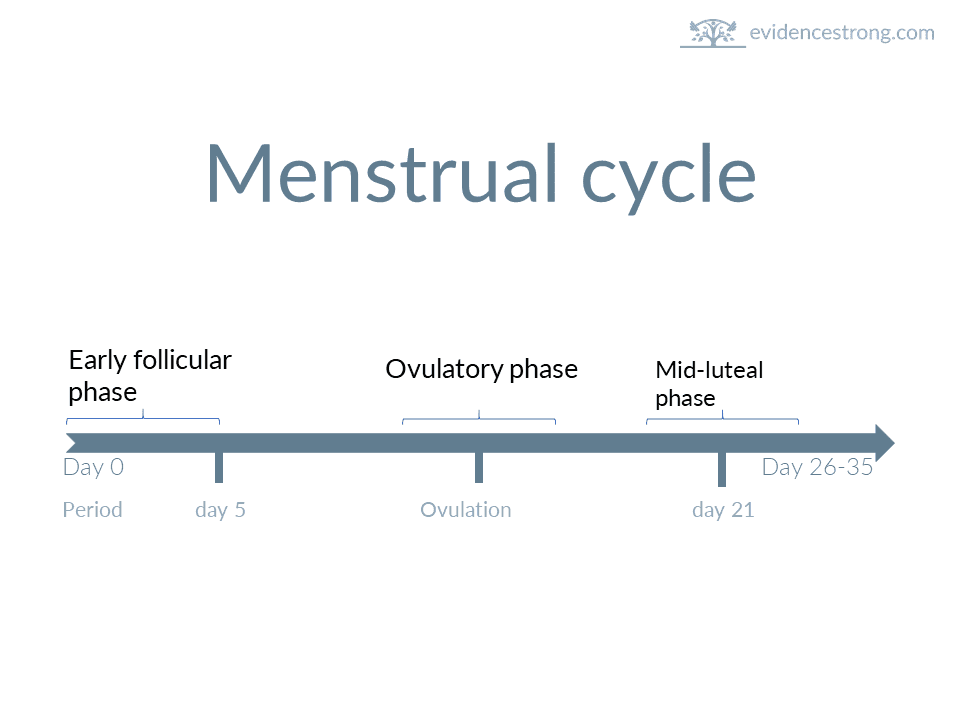Summary of a systematic review with meta-analysis on variations in strength-related measures during menstrual cycle.
Who
232 women (from 21 studies) with regular menstrual cycle (of 21 to 35 days) for more than 6 months aged 19-30 years.
menstrual cycle – a cyclic changes in woman's body allowing for pregnancy.
Design
- Systematic review with meta-analysis of 21 studies.
- Quality Assessment Tool for Observational Cohort and Cross-Sectional Studies
Outcome measures
- maximal voluntary contraction (MVC)
- isokinetic peak torque
- explosive strength
Main results
- Maximum voluntary contraction (MVC) (11 studies):
- 98 participants
- overall non-significant differences between all the phases, but 3 studies have shown higher maximum voluntary contraction around ovulation.
- Isokinetic peak torque (7 studies):
- 139 participants
- measured knee extension and/or knee flexion
- overall there was no difference between phases.
- for knee flexors showed small differences: higher isokinetic peak torque in early-follicular phase versus ovulatory phase.
- 3 studies has shown lower isokinetic peak torque arond period versus other phases of the cycle, and one study found higher values around ovulation.
- Explosive strength (10 studies):
- 96 participants
- tests: maximal vertical/horizontal jump, peak power on cycle ergometer, single-joint isometric rate of force development / time to peak force.
- overall no difference
Take home message
For a clinician & coach
Statistacally there were no differences in strength-related measures between early-follicular, ovulatory or mid-luteal phases.
For a parent
Menstrual cycle does not influence strength-related measures.
For an athlete
Menstrual cycle does not influence your strength.
Original article
Blagrove RC, Bruinvels G, Pedlar CR. Variations in strength-related measures during the menstrual cycle in eumenorrheic women: A systematic review and meta-analysis. Journal of Science and Medicine in Sport. 2020 May 17.
